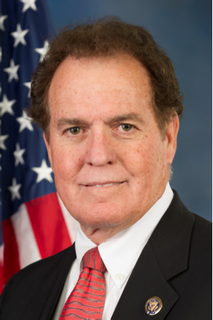A Quote by Judy Woodruff
If you stimulate the economy by means of a tax cut, the people that you tend to be benefiting are the better off.
Related Quotes
Hold on to your wallets folks because with the passage of this trillion-dollar baby, the Democrats will be poised to spend as much as $3 trillion in your tax dollars. Taxpayers will be on the hook for spending that will stimulate the debt, stimulate the growth of government, but will do little to stimulate jobs or the economy.
Our practical choice is not between a tax-cut deficit and a budgetary surplus. It is between two kinds of deficits: a chronic deficit of inertia, as the unwanted result of inadequate revenues and a restricted economy; or a temporary deficit of transition, resulting from a tax cut designed to boost the economy, increase tax revenues, and achieve -- and I believe this can be done -- a budget surplus. The first type of deficit is a sign of waste and weakness; the second reflects an investment in the future.
If we choose to keep those tax breaks for millionaires and billionaires, if we choose to keep a tax break for corporate jet owners, if we choose to keep tax breaks for oil and gas companies that are making hundreds of billions of dollars, then that means we've got to cut some kids off from getting a college scholarship.
Well, certainly the Democrats have been arguing to raise the capital gains tax on all Americans. Obama says he wants to do that. That would slow down economic growth. It's not necessarily helpful to the economy. Every time we've cut the capital gains tax, the economy has grown. Whenever we raise the capital gains tax, it's been damaged.
































